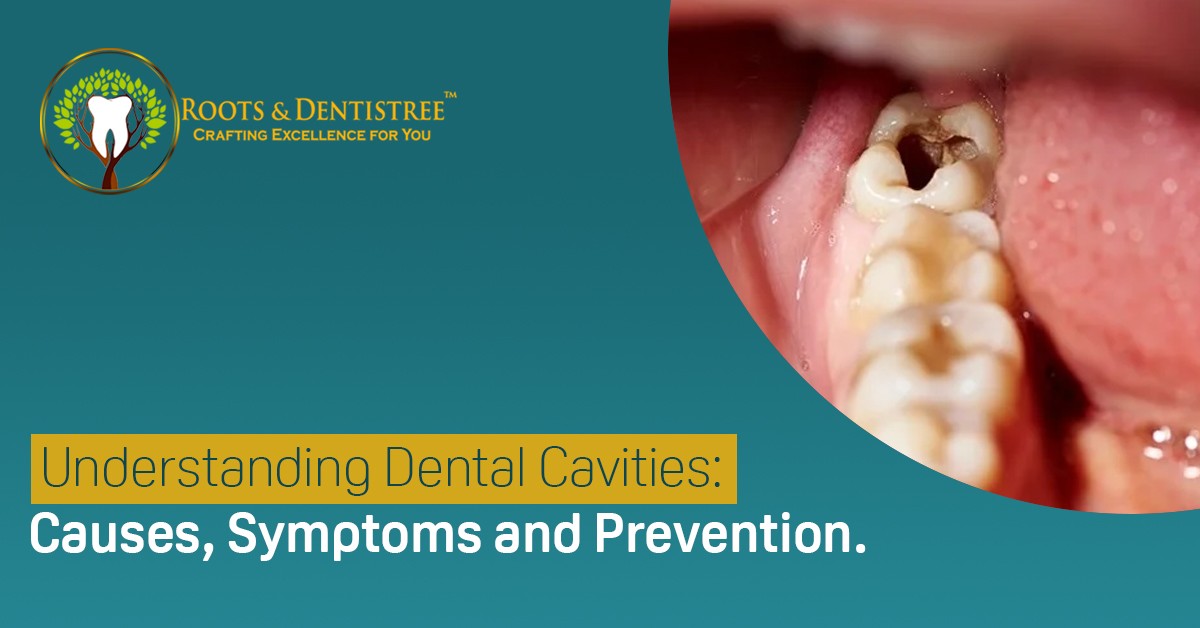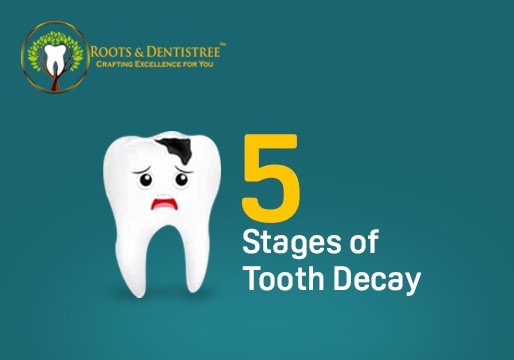Tooth Decay Treatment In Kukatpally: Causes, Symptoms and Prevention

Skipping your oral hygiene routine can have serious consequences for your dental health. Without regular brushing and flossing, plaque can accumulate on your teeth and gums, promoting the growth of harmful bacteria that can cause tooth decay and gum disease. Plaque can also erode the enamel on your teeth, irritate and inflame your gums, leading to gum disease and potential tooth loss. Neglecting dental hygiene can also lead to the buildup of surface stains on your teeth, cavities and affect your teeth appearance. A dental cavity is a serious yet common dental issue among all kinds of dental problems. If left untreated, cavities can cause pain, infection, and tooth loss. Regular dental check-ups & tooth decay treatment Hyderabad at Roots & Dentistree, Kukatpally is suggested by our team. A proper oral hygiene is also suggested by our team can help prevent cavities from forming.
How Does Cavity Form?
A cavity forms as a result of tooth decay, which is caused by a combination of factors, including:
- Plaque: Plaque is a sticky film of bacteria that forms on your teeth and gums. The bacteria in plaque produce acids that can erode your tooth enamel.
- Sugar: When you eat sugary or starchy foods, the bacteria in plaque use it to produce even more acids that attack your teeth.
- Lack of saliva: Saliva helps neutralize the acids in your mouth and wash away plaque. If you have a dry mouth, you may be more susceptible to cavities.
- Poor oral hygiene: Brushing and flossing regularly help remove plaque and prevent cavities. Skipping these steps can allow plaque to accumulate and increase your risk of developing cavities.
- Medical conditions: Certain medical conditions, such as GERD and eating disorders, can increase your risk of cavities by altering your mouth’s pH levels.
Different Stages of Dental Cavities

There are different stages of dental cavities. These include:
- Demineralization: Plaque bacteria produce acids that dissolve the minerals in your tooth enamel, causing it to soften and weaken.
- Early cavitations: As the enamel breaks down, a small hole, or “cavity,” forms in the tooth.
- Progression: If left untreated, the cavity will continue to grow and reach the tooth’s inner layer (dentin), causing more serious and painful dental problems.
- Involvement of the dental pulp: The cavity eventually reaches the dental pulp, the soft inner tissue that contains nerves and blood vessels, causing pain, sensitivity, and an increased risk of infection.
- Abscess: If the cavity is not treated, an abscess, or pocket of pus, can form at the root of the tooth, leading to severe pain, swelling, and potentially life-threatening complications.


